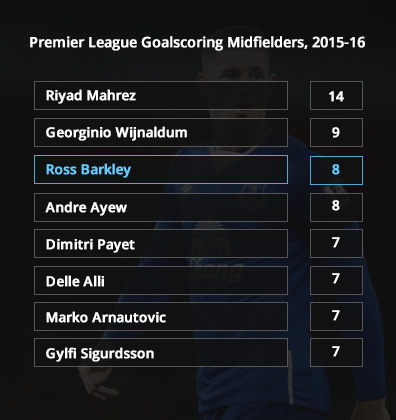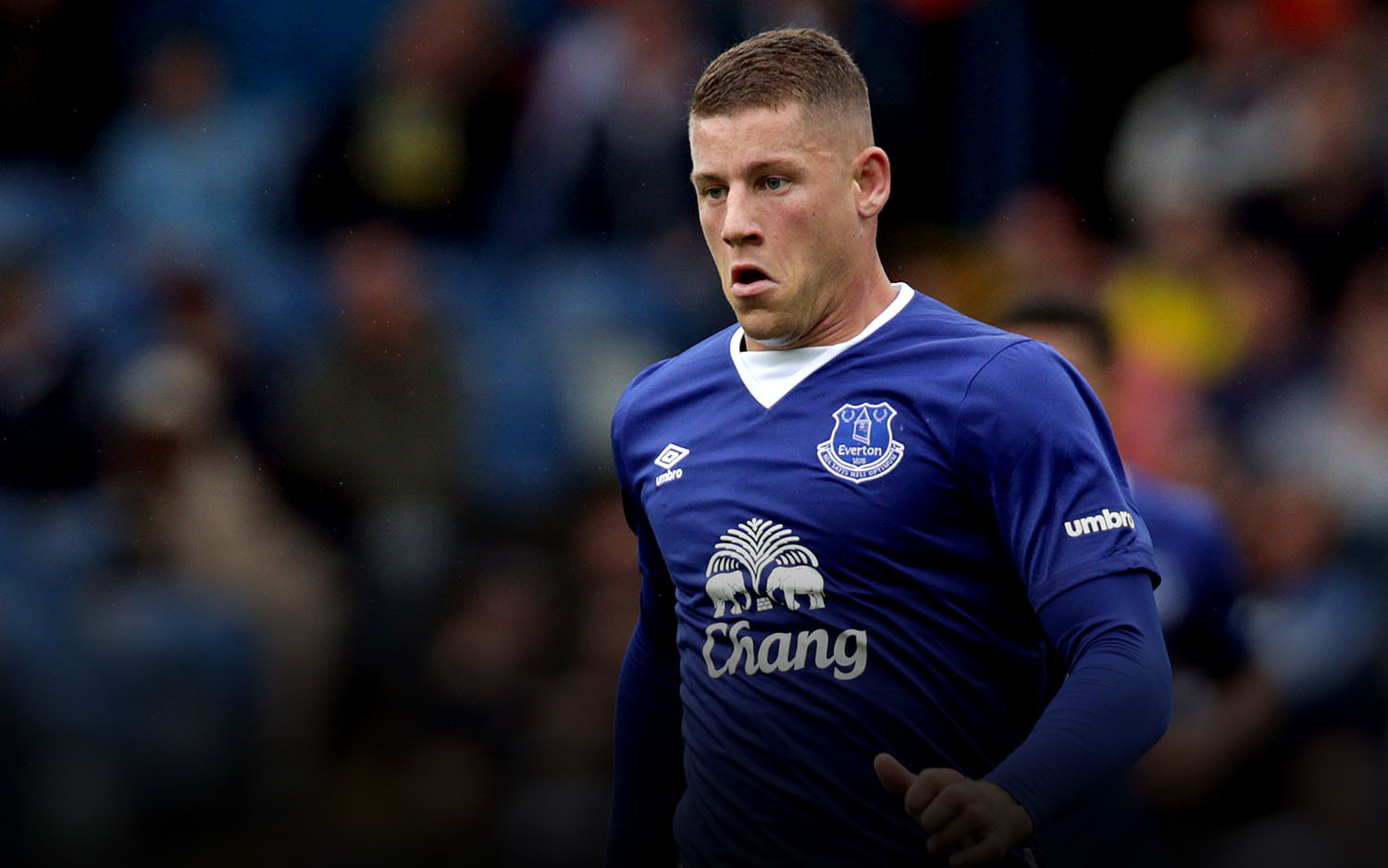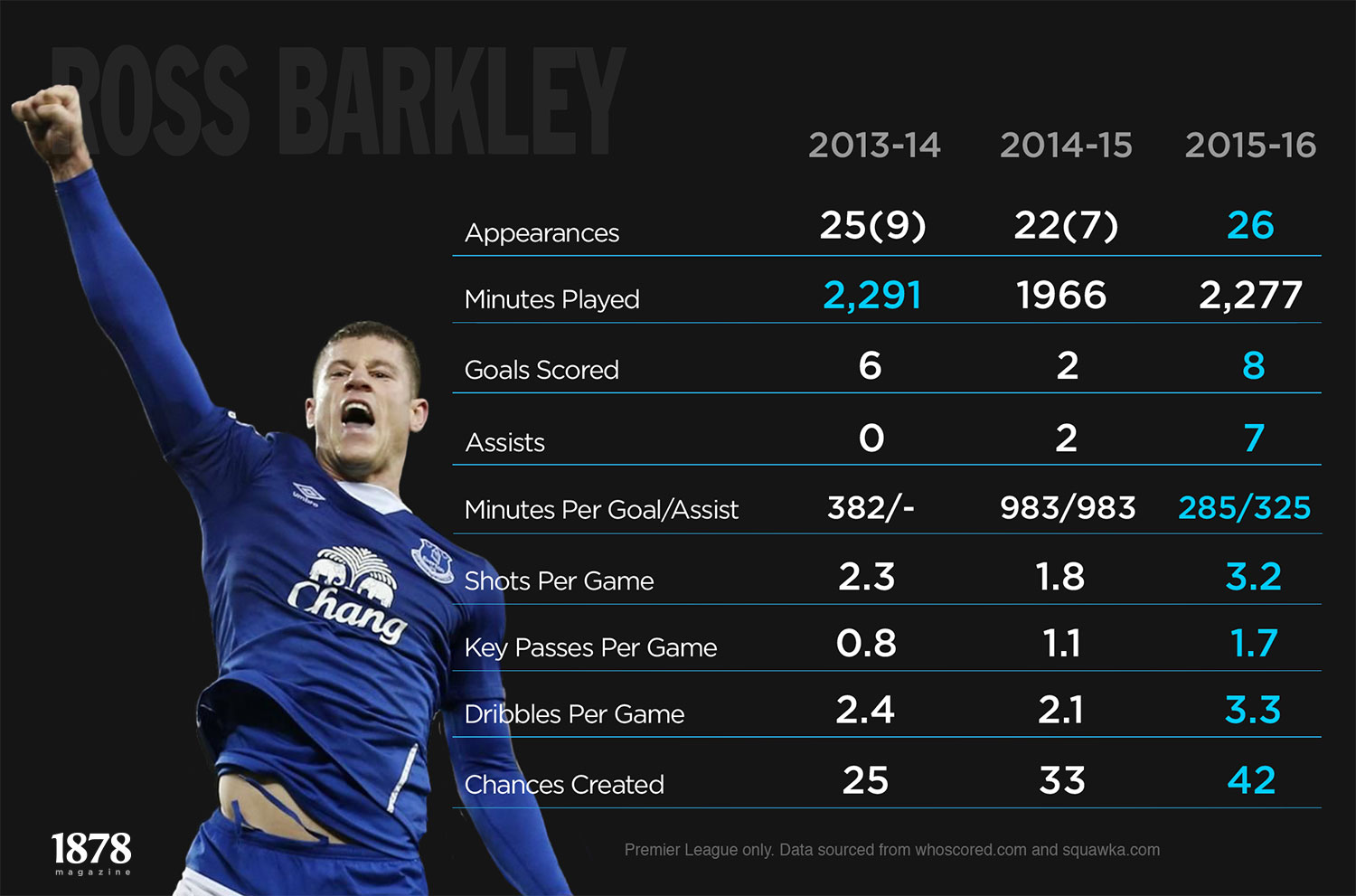AS RELEVATORY AND UPLIFTING as Robert Martinez's first season in charge at Goodison Park was, the Catalan's second season was a demoralising journey back to the familiar for Evertonians for whom disappointment and false dawns have become hauntingly familiar in the Premier League era.
His appointment on the back of Wigan Athletic's FA Cup success and subsequent relegation may not have been greeted with universal acclaim but a record points tally, combined with enterprising loan signings and some scintillating and expansive football, seemed to herald the club finally taking the next step forward that ultimately appeared to be beyond his predecessor.
Optimism was high going into 2014-15 but the tone for the campaign was set in the latter half of August with a quadruplicate of setbacks from which neither the team nor the manager were ever really able to recover until irrevocable damage had been done to the season. Precious advantages were thrown away at Leicester and at home to Arsenal before Chelsea came to Goodison and scored six times in a mad contest that ended 6-3 to the visitors, all of that coming after the loss to injury two days before the start of the season of Ross Barkley.
The club's breakout star of 2013-14, Barkley had been handed a starting role by Martinez from the opening day and it was faith in his abilities that the then 20-year-old would repay, starting with his first Everton goal in a 2-2 draw at Norwich. He would go on to light up the Blues' road to a fifth-place finish with more goals, including a jaw-dropping solo effort at Newcastle in a 3-0 win and an exquisite side-foot lob of Joe Hart from 25 yards in an otherwise meaningless 3-2 home defeat to Manchester City in May.
No surprise then that as Everton's challenge for the top four the following season derailed spectacularly in the first two months of the campaign, it was the return of Barkley that many Blues clung to in the hope that he could be the spark to revive their flat-lining hopes of making the Champions League. Injured in a practice match at Finch Farm on the Thursday before the big kick off at Leicester on the following Saturday, the Wavertree-born midfielder would miss the first eight weeks, during which time Martinez's side won just one of seven Premier League games and crashed out of the League Cup at the first hurdle. The Europa League had been the sole beacon of light in an otherwise depressing few months and it would continue to be until March because, unfortunately, Barkley's struggles would mirror that of the team for long stretches.
Still relatively young and inexperienced, Barkley wasn't equipped to drag the team out of the doldrums single-handedly – indeed, he struggled to recapture his own form from the year before. Part of that was down to the not uncommon second-second syndrome, part of it was due to Everton as a whole battling for consistency, but it was also down to him being played out of position on the left flank on many occasions instead of his preferred role behind Romelu Lukaku.
A lack of balance and deploying square pegs in rounds holes are criticisms that have been levelled at Martinez over the past 20 months, but if there is an area where he deserves enormous credit it's in having the courage in his convictions regarding his younger stars. Shoe-horning Barkley into an unfamiliar wide role may have been as much about keeping his prodigious young talent in the side where he could continue to develop and leveraging his ability to turn a game as anything else.
Barkley thrived in a deeper central role in the home win over Queens Park Rangers in mid-December 2014 but even with the Blues winning 3-1 and Ross scoring the opening goal, he and the rest of his team-mates were still on the receiving end of frustrated calls from the crowd in the closing stages of that match when they insisted on passing the ball backwards rather than tear on for a fourth goal. That more than a pleasingly routine victory, only the fourth at home in the League all season, was demanded of the team by the home fans epitomised the level of expectation at Goodison.
Perhaps only Tim Howard and John Stones have felt the burden of that expectation as much as Barkley this term, although those two players have gone through patchy form of late whereas Ross is, by all measures, in the form of his life. Alongside Lukaku and Gareth Barry, he is one of only three players to be named in the starting XI in every League game this season, surpassing his starts for each of the two previous season when he turned out against West Bromwich Albion a fortnight ago, and he has already scored twice as many goals in all competitions as he did in 2013-14 and 2014-15 combined.

He is a demonstrably better footballer these days, far more adept at keeping the ball glued to his feet and better able to use his upper-body strength to hold off opponents and wriggle out of seemingly impossible situations. His vision may not always be matched by his end product but it's improving all the time and he is becoming a reliable source of assists for the likes of Lukaku. While he may not be extrovert captain material, he has emerged as a genuine leader of the team when the team is going forward. Defensively he remains weak, a fault for which his manager shoulders equal, if not more, responsibility but there again he has the physique and plenty of room to get better. Most importantly, he is regarded as the long-term future of Everton, a player around whom a team can be built rather than used as a tool to stave off financial collapse.
His road to reverence as the jewel in Everton's crown hasn't been an easy one. His story of dedication will be well known to Evertonians – how he used to run the six miles from Wavertree to Finch Farm when he couldn't get a lift to training or take two buses to get home again at the end of the session. It's the kind of drive and commitment to self-improvement and sporting endeavour that many fear is ebbing away in an age of video games and sub-standard facilities in grassroots football.
Then, having leapt at the opportunity to join his Toffees at the age of 11 despite a queue of clubs' scouts ready to snap him up for their teams and played his way to the brink of David Moyes's first team as a 16-year-old, he suffered a horrific double-leg break that would sideline him for a year at a crucial stage of his development. It could have been worse – the initial diagnosis from the doctor in Belgium where he suffered the injury playing for England U19s was that he might never play again.
It is both to Barkley's credit and his strength of character that he not only recovered as quickly as he did but continued on his upward trajectory towards Everton's first team, even if it needed the right manager in charge at Goodison to introduce him when the time was right. Despite a man-of-the-match display as a raw 17-year-old in the first game of the 2011-12 season, he would make just six Premier League appearances that season and only two starts. The second was the next Premier League fixture that month against Blackburn Rovers where one ill-advised back-pass convinced Moyes that the young midfielder wasn't ready.
The following season, Moyes's last, wasn't much better for Barkley – he ended up being farmed out on loan to Sheffield Wednesday and then Leeds United where Neil Warnock famously sent him back to Everton because he couldn't find a place for him in a League One side. Six months later, he smashed in that terrific left-footer at Carrow Road and the rest, as they say, is history.
Since then, of course, backed by Martinez, Barkley has exploded onto the national consciousness, played for England at the World Cup Finals – albeit under a manager of Warnockian stubbornness when it comes to recognising his abilities – and become tabloid fodder around the transfer windows for rumour mongers trying to push him towards the likes of Chelsea and Manchester City for a Raheem Sterling-sized transfer fee.
He has been compared to Duncan Edwards and Paul Gascoigne in terms of natural, precocious ability with the ball; to Wayne Rooney with regard to his pedigree by Evertonians; and now to Delle Alli when it comes to the pointless question of who is the country's best young talent. In truth, however, he isn't wholly comparable to any of them. Still an uncut diamond in many respects and a player as prone to poor or slow decision-making from one minute as he is to producing a moment of logic-defying magic the next, he is ploughing his own furrow at his own pace, inspiring frustration among some as much as he defies comparisons from others.
Not yet at the centre of Roy Hodgson's plans with Euro2012 on the horizon – the national debate continues over whether he and Rooney can play in the same team – back at Goodison it's Barkley on whose shoulders rest so many hopes and long-term dreams for success-starved Blues. Like a demanding, exacting and over-bearing parent, the home crowd – or, perhaps more accurately, at least an unavoidable element within it – scowl and grumble at his every misstep but are there to revel in his accomplishments. Ross, eager to please but even more overjoyed to perform and score for his beloved Blues, delights in the adoration, welcoming the Gwladys Street's metaphorical embrace with his open-armed celebrations while the voice inside perhaps pleads, have a little more faith, will ya?
If the expectations of him to perform are emblematic of the old adage that we're hardest on our own – Gerard Deulofeu, for example, is afforded leeway to carve out just one or two telling moments per game while Barkley is seemingly expected to produce with every touch – Ross himself bears the burden quietly and with no outward signs that its weighing him down. Privately, of course, it may be a different story – how could a lad of his age not be affected by the pressure being exerted by his own supporters – but in his heart of hearts Barkley will know that even if Martinez's third season hasn't gone according to plan, he is blossoming into a wonderful player and starting to fulfil that rich potential on a weekly basis. More than that, he has become the heartbeat of a team that can be scintillating going forward and a reason, perhaps, why his manager's apparent failure to secure a much-vaunted No.10 last summer no longer feels as urgent as it did back then.
Ultimately, it's Ross Barkley whose own chant has become a YouTube and social media stable for Blues fans and his name that is central to the refrain that the School of Science is on its way back. For all that is demanded and expected of the prodigal son, Evertonians have taken the young Scouser to their hearts – a representative for the club's long and cherished tradition for producing home-grown superstars, a proxy for every football fan's unfulfilled dreams and the great white hope of a generation.
The fear dragging at what remains of another season that has, thus far, fallen short of expectation is that there could be an exodus of Everton's brightest stars this summer. Fans will agonise through the summer as transfer speculation swirls around him and the likes of Lukaku and Stones, but while those players have only the ties they have developed since becoming club heroes in their own right over the past three seasons, Barkley is a Toffee through and through. With Everton having no financial imperative to sell their most treasured assets, somehow you feel that the lad from Wavertree will be wearing the Royal Blue Jersey for a good while yet to come.


